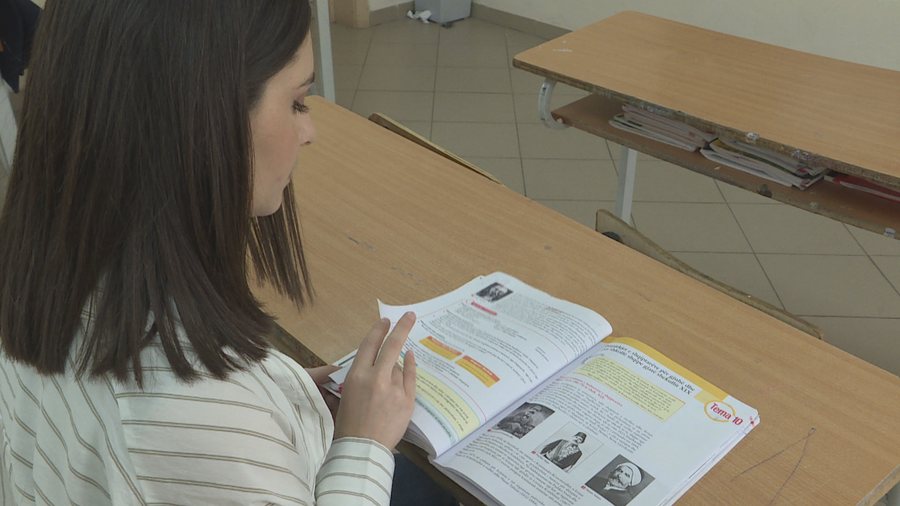
The last complete reform of the pre-university education curriculum in Albania dates back to 2014, and since then only partial changes and improvements have been made to the textbooks. While we live in the digital age, teachers are often forced to fill this gap between technological reality and old content in textbooks themselves.
Old, stiff books, not updated with the latest developments from the world of technology, are what are offered to pre-university education students in Albania.
"What is required in the 21st century is digital competence, digital learning," says the principal of "Qemal Stafa" high school, Klotilda Jaupi.
"Technology, when integrated into the classroom, brings an interactive lesson," the teacher emphasizes.
"They more easily go towards the digital element than towards the book," says another teacher.
Despite the fact that today we are talking about a digital Albania, 11 years have passed since the last reform of pre-university textbooks, in 2014. Since that year, only patches have been made to specific textbooks, where intervention was deemed necessary. Teachers have been forced to fill these gaps in technological developments through their own interventions.
"Beyond the sections contained in the book, we also hold various mini-competitions for students to express their skills."
"We are creating a website that will feature work analyses, blogs, and student reflections."
"I had the students create an essay using chat gpt and then based on that essay I told them to give their version."
"In analyzing a literary work, I present the event through a film first."
"Indeed, perhaps the gaps can be filled with these elements. However, there have often been difficulties."
"Not everyone knows how to use technology at the levels required."
"It's not always the conditions, but the ones we have that we should exploit."
At a time when countries with more advanced education systems have begun to move away from physical books and use digital platforms that are enriched in real time, the outdated knowledge of Albanian students is also reflected in international knowledge tests, such as PISA, where Albania, perhaps not so much through the fault of the students, ranked last in the world in the ability of 15-year-olds to think creatively. (A2 Televizion)











